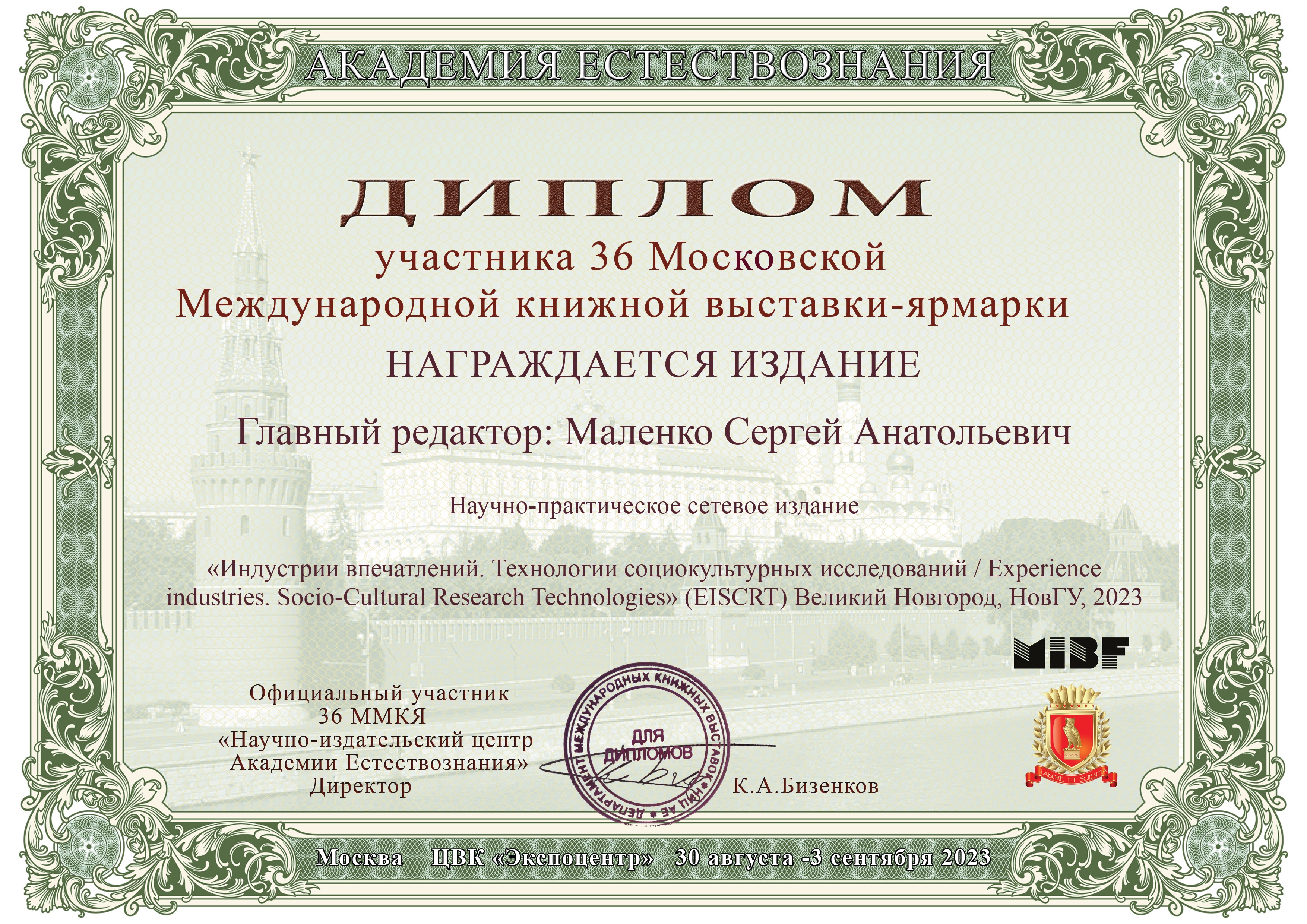ФЕНОМЕН ФЭНТЕЗИ: КАК ЖАНР СТАЛ ОДНИМ ИЗ СТОЛПОВ СОВРЕМЕННОЙ КУЛЬТУРЫ
DOI:
https://doi.org/10.34680/EISCRT-2024-4(9)-248-283Ключевые слова:
фэнтези, литература, визуализация, компьютерные игры, музыка, массовая культура, культурологический подход, синкретизм, современная культураАннотация
В XX веке от фантастики отделился и обрел самостоятельность новый художественный жанр – фэнтези. Многие деятели культуры стали обращаться к эстетическим идеалам древности, Средних веков и европейского Возрождения, которые, в свою очередь, стали синтетической мировоззренческой основой для формирования нового жанра. В настоящей статье проводится анализ специфики жанра фэнтези и его места в современной массовой культуре. Определяются и анализируются магистральные пути развития жанра фэнтези с начала ХХ века до начала ХХI века, который сочетает в себе синкретизм традиционных направлений аристократического эпоса, исторического романа и народного фольклора. Также исследуются сценарии превращения современной индустрии фэнтези в инструмент провозглашения, визуализации и изучения сложных тем морали и идентичности. Жанр полноценно отражает палитру современных социокультурных проблем, а его глобальная популярность во многом способствует межкультурному обмену. Особый интерес представляют произведения, имеющие литературный первоисточник и последующую адаптацию (фильм, видеоигра), на примере которых можно проследить их художественную динамику. Результаты исследования предлагают новые взгляды на современное межкультурное взаимодействие. Комплексный культурологический подход к исследованию фэнтези позволяет выйти за узкопрофильные рамки такого вида искусства, как литература, и проследить его активную и успешную экспансию в различные сферы культуры: кино, аниме и компьютерные игры.
Для цитирования статьи:
Ленков, П. Д., & Шемонаев, Е. А. (2024). Феномен фэнтези: как жанр стал одним из столпов современной культуры. Индустрии впечатлений. Технологии социокультурных исследований (EISCRT), 4 (9), 248-283. https://doi.org/10.34680/EISCRT-2024-4(9)-248-283








